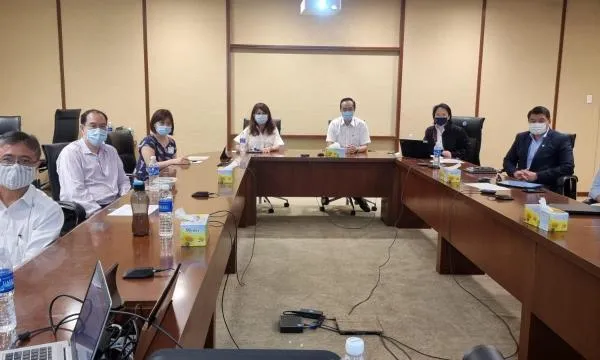
Singapore government committee to look into Integrated Shield Plans issues
Concerned parties have met to discuss improvements on management of IP panels.
A committee appointed by Singapore's Ministry of Health (MOH) will be formalised from the existing pro-tem committee looking into matters surrounding the management of Integrated Shield Plans (IP), Senior Minister of State for Health Koh Poh Koon has said in a Facebook post.
Koh met with representatives from the Singapore Medical Association (SMA), Life Insurance Association (LIA) and the Academy of Medicine, Singapore on 31 March “to discuss improvements to the way IP panels are set up and administered.” All parties agreed to the creation of the committee.
“The committee will take the work forward, and work in the public’s and patients’ interest to deliberate and implement changes for quality, safe, cost effective and affordable care for all,” Koh said.
The meeting comes as doctors and insurers have recently been locked in battle over the issues on IP panels.
In a position statement, SMA mentioned that insurers have formed “highly exclusive” medical panels which excluded many private specialists.
It added that there was “opacity in the selection criteria for doctors to be included as preferred providers in panels.”
“Since the IP sector is already subsidised indirectly by the government through voluntary downgrading, the SMA recommends that the relevant authorities impose a 85% or 90% claims ratio on each IP insurer, to instil cost discipline in IP insurers and ensure that premiums collected are directed to healthcare costs and not frittered away on non-healthcare cost items,” SMA said in the statement.
LIA, in a response, mentioned it has requested for clinical quality measures and guidelines to prevent “over-treatment” on numerous occasions.
“Clinical quality measures will enable insurers to make better, evidence-based decisions on admitting doctors into panels. Policyholders will ultimately benefit because they will receive better care,” LIA said.
It also mentioned that SMA’s analysis of insurers’ costs and claims costs are “misleading.”
In a later statement, LIA said that insurers have since expanded panels, with the current panels ranging from 250 to 400 private specialists.
Koh noted the discussions during the meeting were “constructive,” having sought ways to work together to ensure that patients continue to have access to good quality and cost effective care.
“These include expanding insurers’ panel of doctors with clear and transparent criteria, as well as improving the claims pre-authorisation process for treatment, particularly by doctors who were not on panels,” he said.
Koh added more details on the committee and proposed recommendations will be released when ready.



















 Advertise
Advertise





